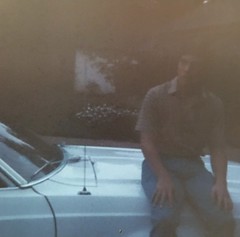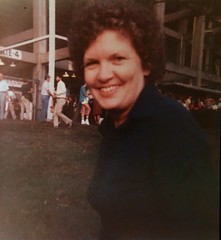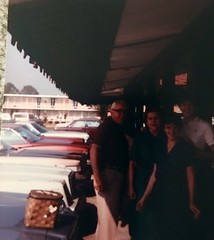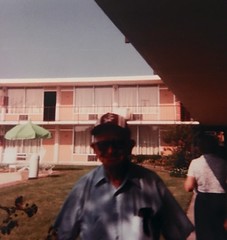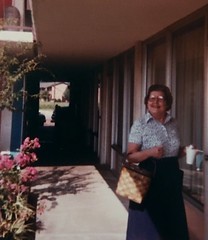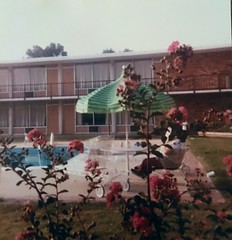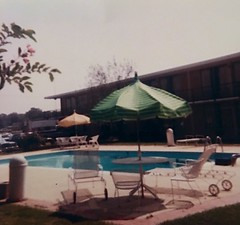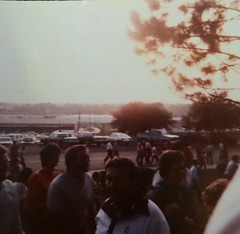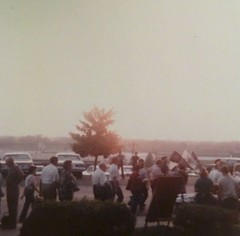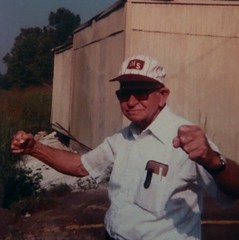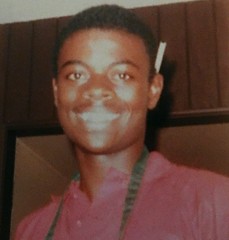


















The rehearsals for All-West Tennessee Chorus were held the week of my birthday at Wooddale High School in far Southeast Memphis. They proved to be an incredible amount of fun. For one thing, I got to meet singers and musicians from many different schools, a lot of them in the inner-city neighborhoods of Memphis. There were quite a few gospel musicians, and many of them were surprised that I watched Oris Mays on television on Sunday mornings, or that I liked the gospel group Commissioned. The baritone a chair ahead of me in the section was a guy from Melrose High School named Kevin Whalum. His brother Kirk was a famous contemporary jazz saxophonist, and his uncle Wendell P. Whalum was the choir director of Morehouse College in Atlanta. We hit it off instantly, and he seriously suggested that I consider going to college at Morehouse. Many times I wish I had taken his suggestion more seriously.
In addition to new friendships made, I quite enjoyed the music that we were performing at All-West. One of the pieces was called Tomorrow Shall Be My Dancing Day by the British composer John Gardner. I was at once thrilled with its rhythmic diversity and high spirits, and wondered what other interesting works Gardner might have composed. We were also rehearsing American composer Daniel Pinkham's Sinfonia Sacra, a work which reminded me of Benjamin Britten. As I recall, other pieces included a double-choir version of In Dulci Jubilo which I had previously known only as "Good Christian Men, Rejoice", and one of the Robert Shaw Many Moods of Christmas suites.
This was also the time I began to be more and more interested in rap music. I had heard early rap before, and could recall songs like "The Message" by Grandmaster Flash and the Furious Five, or "Tough" by Kurtis Blow, which I had always liked because of the percussion-laden breaks it had. But this was the time when Run-DMC and Whodini had started to appear, and rap was really increasing in popularity, even in the South. During one of the breaks in All-West rehearsal, we found that some guys had set up a jam boix in the foyer in front of the auditorium. They were playing the song "Electric Kingdom" by Twilight 22 and were practicing breakdancing to it. I wasn't sure if they were just ordinary Wooddale High School students, or if they were some of our All-West participants, but I do recall being amazed by what I saw. The last day of rehearsal was my birthday, December 2, and as I recall, the performance was on Saturday December 3.
It had snowed that week, and the accumulation made for attractive Christmas scenes, as most people already had put up their lights and trees. My dad was back from Canada, and with it being my birthday, I asked him to take me to Somerville in Fayette County to the Christmas parade they were having that night. (My pictures of Bartlett's parade from that December are captioned with the date December 5, a Monday....apparently they had postponed Bartlett's parade due to the snow). Despite snow still on the ground, the roads were not bad, and Dad drove us over to Somerville, and I seem to recall us eating dinner at The Hut. If this is the occasion I remember, they had barbecued ribs, and they were very good indeed.
The main reason for me wanting to go the Somerville parade (aside from Bartlett's being postponed), was that I was fascinated by Fayette-Ware High School's marching band. I had heard great things about them, and wanted to see them for myself. By this time, I was becoming interested in the Black marching band style and tradition, and Fayette-Ware was somewhat unusual, in being an all-Black rural high school. When schools had been integrated in Somerville in 1970, white parents avoided integration by sending their children to a recently-formed private academy. Then the school board, whose children attended the private school, set about making sure that integration could not work. They put the 9th and 10th grade at the campus of W. P. Ware High School, the former Black school, and the 11th and 12th grades at Fayette County High School, and then ran buses back and forth between the two campuses all day long. Even parents that had no objection to integrated schools would likely have objected to that sort of arrangement, and that was probably the point. Thereafter, the county appropriated only the barest minimum of funds for the public schools. But despite the impossible conditions at Fayette-Ware, there was a resilient culture exhibited by the students there. They excelled at athletics and music, dancing and the visual arts. And their marching band was well-known throughout the Mid-South.
As for Somerville itself, it was a Southern gothic movie-set of a town, with the mandatory courthouse in the center of a square surrounded by local commerce, with a few two-story buildings with the upper balconies. This was long before anyone thought of Fayette County as a potential suburb of Memphis, and one could have imagined the town as the scene of a film version of a Faulkner novel. Snow was still on the ground, but a large crowd gathered to see cheerleaders, majorettes, drummers and band members from various schools in Fayette County as they marched in front of the Fayette County Courthouse. But it was the band and majorettes of Fayette-Ware High School that stole the show at the end of the parade, playing, as I recall, a Prince tune as they marched down the street in front of the courthouse. By then the crowd had grown even larger. It was a great way to spend my birthday.
On the following Monday, Bartlett held their Christmas parade along Stage Road. In addition to our high school band, bands from Frayser High School, Colonial Middle School and Sherwood Middle School were also in the parade, and there were a number of floats. By now, I was thoroughly in the holiday spirit.












